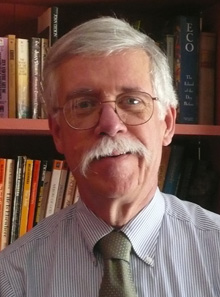
John served congregations for 38 years, thirty of those years at Western Presbyterian Church in Washington, DC. John’s quest for continuing personal, spiritual and professional growth led him to complete a PhD in systematic theology and an Executive MBA program. The latter program generated a sense of call to highlight the need for good business practices in the business side of a congregation’s life. He wrote and leads seminars on his highly praised book, The Business of the Church: The Uncomfortable Truth that Faithful Ministry Requires Effective Management. He consults with congregations on issues such as the creation and implementation of strategic plans, congregational growth and the empowering use of endowments.
Philosophy of Practice
My experience in congregational ministry and as a consultant suggests that strategic plans are essential to faithful, effective ministry. The creation of a plan helps a congregation develop a consensus about who it is and where it wants to go. In the planning process, core theological values are made explicit in ways that help a congregation better understand what motivates its vision for ministry. The creation of goals and strategies help align a congregation’s staff, volunteer, financial, and building resources with its vision. Many churches have had disappointing experiences with strategic planning. Often there is a lot of excitement in the planning phase which then dissipates before implementation. One of my strengths is helping a congregation move from the planning phase to implementation. When done properly, the implementation phase can be far more exciting than the planning phase.
I am committed to congregational growth. The universe expands, living organism grow, and I believe that congregations can expand grow, as well. For thirty years, I was pastor of a congregation that evolved from a membership in which about 80% of the members were over the age of 65 to one in which 65% are under the age of 45. I love helping congregations envision how they can grow. Even more, I love helping them plan and implement the strategies that lead to growth.
Strategic Planning
I am convinced that Moses, Jesus and Paul all had strategic plans. They were probably sketched out in the sand after a hard day of work. But strategic plans, evaluated daily, they were. Congregations need strategic plans as well. I welcome the opportunity to work with congregations of all sizes as they create and implement strategic plans.
Congregational Growth
I consider myself an encouraging presence who has studied and practiced the art of congregational growth. My advice about specific growth strategies is not as valuable as the fact that I ministered in a congregation that some in our denomination were ready to close, saying that it was “beyond hope.” Keeping hope alive through a growth process is probably the most important and challenging part of the transformation from a stagnant or declining congregation to one that is growing in various ways.
Management
For reasons I don’t really understand, I have come to know more about management than I ever wanted to know! I opted to do an MBA as a mid-career continuing education program. I learned so many things that I should be been taught in seminary about managing the life of a congregation. What started as an academic program ended up as a calling.
I can help congregations with financial, building and personnel management. A lot of my research comes from the corporate world. However, it has direct application to the business life of a congregation. Finding the links between successful management in business, secular organizations and congregations helps congregations become more effective in their mission.
Systems Analysis
I was blessed to become friends with Rabbi Edwin Friedman while he was the rabbi of a Reconstructionist congregation in the same building in which I was an associate pastor of a Presbyterian congregation. I use his systems theory approach to help congregations, staffs, and staff members break out of highly individualistic approaches to understanding problems and possibilities. Whether I am talking about planning, growth, or management, I am using systems theory as my foundation.
